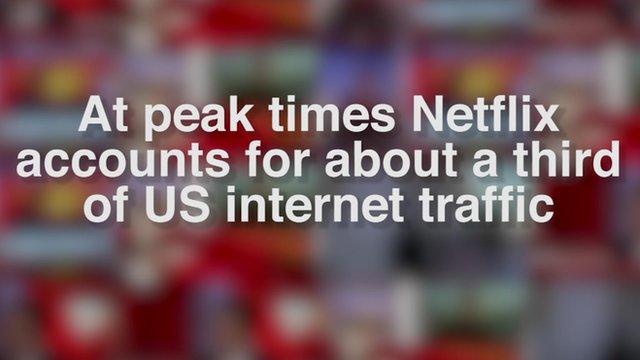EU's net neutrality guidelines get published
- Published
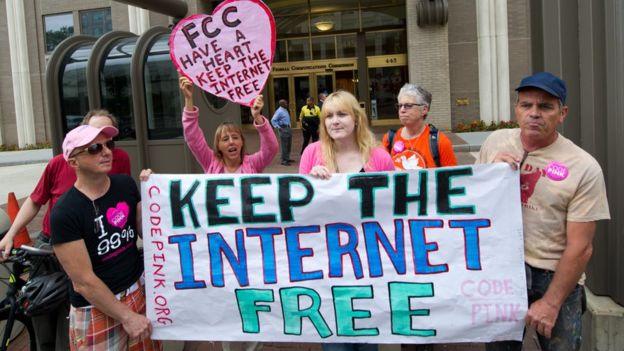
Campaigners for net neutrality argue it is the best way to ensure free and open competition on the internet
The EU is taking a tough line on net neutrality.
The Body of European Regulators for Electronic Communications (Berec) - which represents all the EU's communications regulators - has finally published guidelines, external clarifying how telecom companies should treat the data they handle, months after a law concerning the matter was published.
In the past, apps and other online services could, in theory, pay more to ensure their products ran smoothly. That appealed to network providers, who saw it as a way to boost profits.
But Berec says only a limited number of services will be able to ask for special treatment, and then only so long as it is not to the detriment of others.
The new rules also set out consumers' right to be free to access and distribute information and content, run applications and use services of their choice, so long as they are not illegal.
The publication has been welcomed by digital rights experts.
"Europe is now a global standard-setter in the defence of the open, competitive and neutral internet," said Joe McNamee, executive director of European Digital Rights (EDRi).
What is net neutrality?
The term refers to the idea that all data should be treated equally, regardless of its content.
Think of the networks as being motorways. Instead of having slow lanes for lorries and fast lanes for cars, all vehicles can go the same speed.
Thus YouTube should not be able to get its video data streamed faster - and thus offer higher-quality clips that do not buffer - than Vimeo or other smaller sites, assuming everyone's computer servers can upload the material quickly in the first place.
Likewise, networks should not give preference to video call data over music downloads or web pages.
Critics had argued that giving faster internet traffic to one company over another was bad for business and had the potential to threaten innovation.
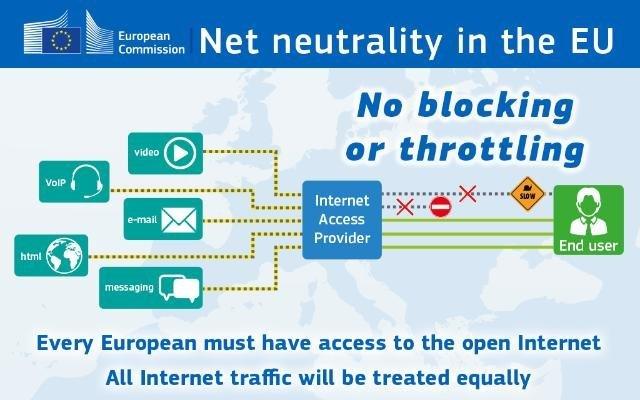
Berec says European residents should have access to the open internet with equal measure and fairness
What are the exceptions?
The guidelines refer to "specialised services", external.
Examples given include:
high-quality voice calling on mobile networks
real-time health services, such as video feeds for use in remote surgery
live broadcasts over internet TV services
Regulators would have to check that giving preference to such services would not degrade others.
Berec adds that the networks can also manage traffic "to comply with a legal order, to ensure network integrity and security, and to manage congestion, provided that equivalent categories of traffic are treated equally".
Much was made of "zero-rating" services. What happened to that?
Zero-rating refers to subscription packages in which use of a specific service would not be affected by data caps.
For example, a user who had a 5GB download limit on their mobile account might still be allowed to access Facebook for free as an exception.
Berec places an outright ban on blocking or slowing some apps but not others under such a deal.
However, it acknowledges that other cases will be less clear cut, and suggests that regulators bear in mind what effects there will be on the public when they assess requests for exceptions.
"There are lots of details still to be determined like how national regulators like Ofcom actually enforce the law using these guidelines," commented Prof Chris Marsden of Sussex University
"The law has been in force for months and they're not exactly stampeding to bring actions.
"Civil society organisations are claiming a great victory but we will see. With over 30 national regulators involved - 28 EU plus several others - much can change or be ignored."

Life in the fast lane will be the same for everyone regardless of what a user wants to send
What does this mean for internet service providers?
For bigger ISPs, it means that they will need to avoid launching services that discriminate between different online services.
For smaller ISPs, which might have struggled to convince the tech firms to pay for faster access, it should ensure a more competitive market.
Berec believes that will benefit the public.
However, the UK's decision to leave the EU may mean that UK citizens end up living under a different regime.
"Ofcom is a member of Berec and has been contributing to this work," wrote Reg Dhanjal from the law firm Pinsent Masons earlier this year, external.
"However, with the Brexit vote it may in time set out its own net neutrality guidance.
"Those guidelines will likely be informed by the EU approach to net neutrality but could potentially contain some differences to the EU regime."
- Published27 October 2015
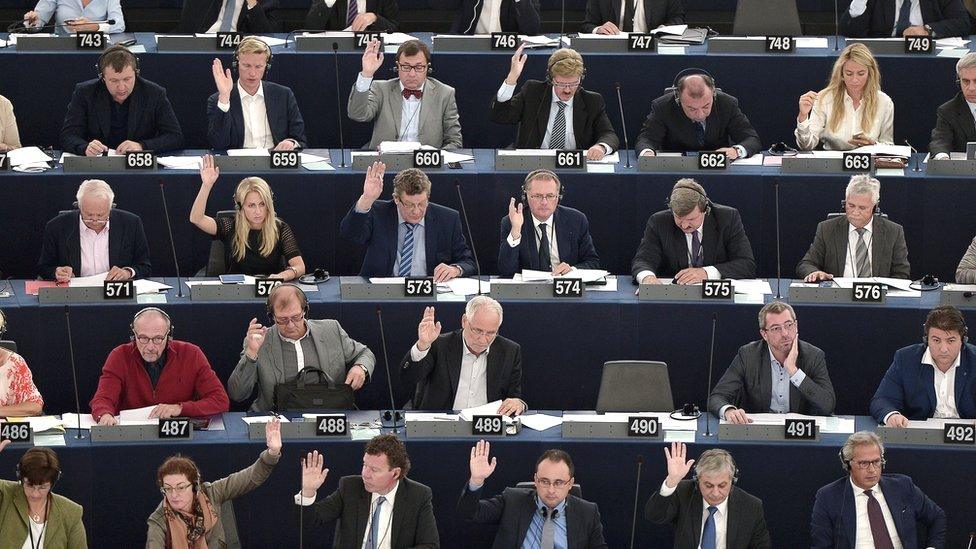
- Published27 October 2015
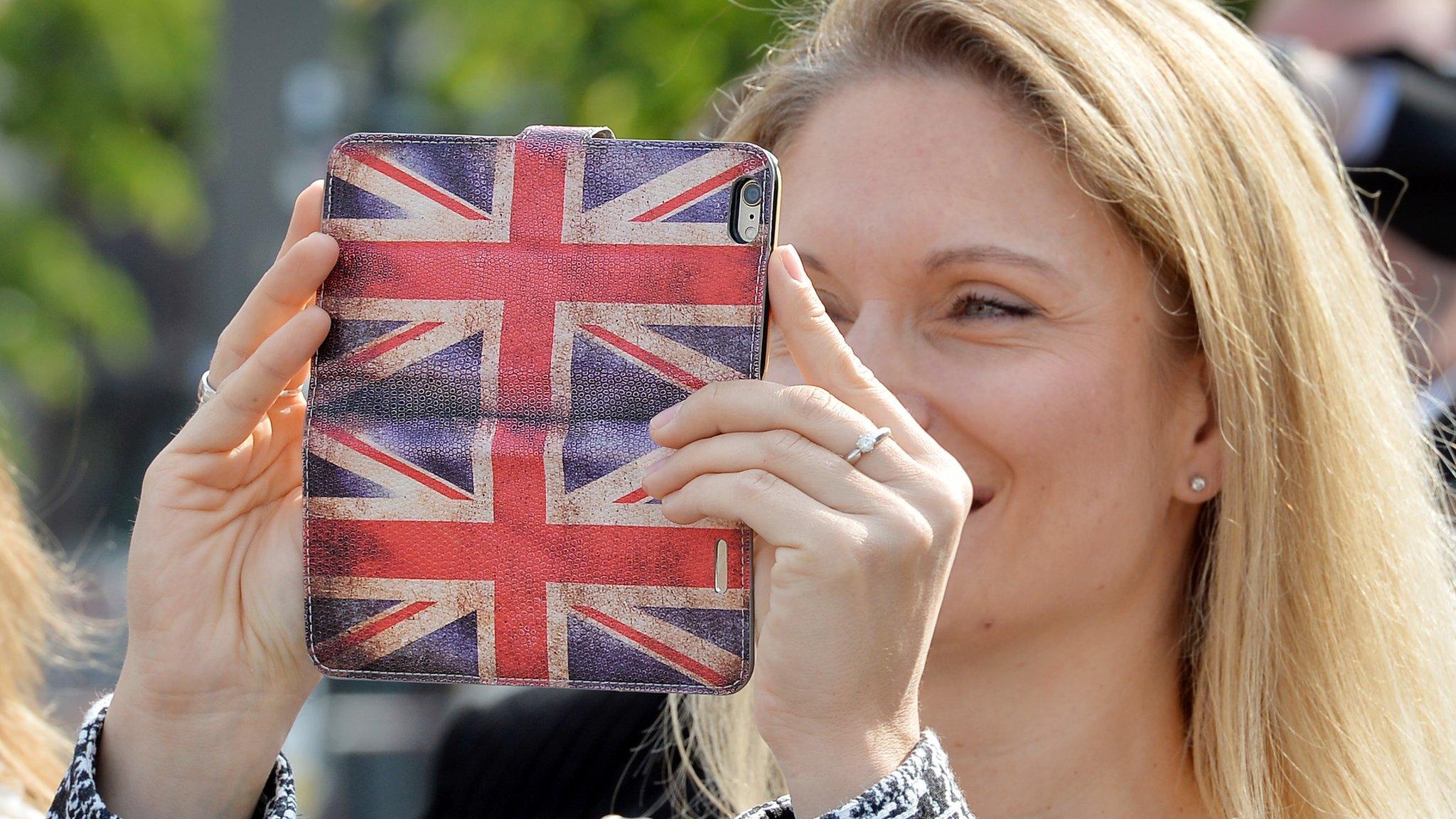
- Published19 May 2015
